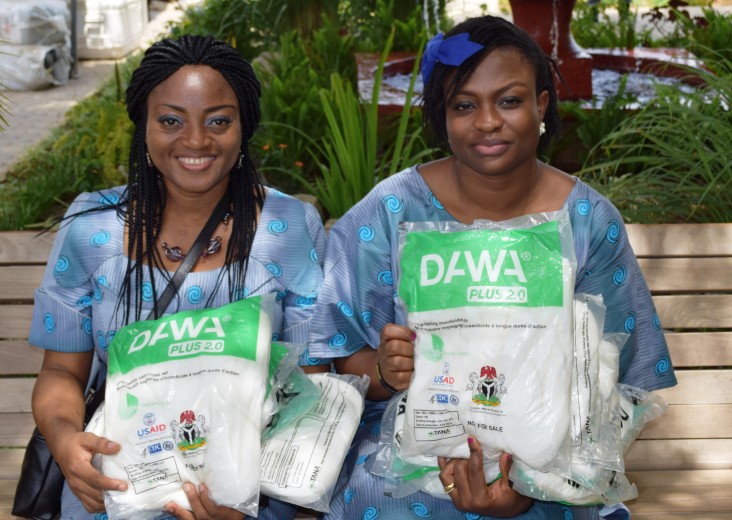
'What is your role?' the theme for 2017
For Immediate Release
ABUJA, NIGERIA- On April 24, the U.S. Embassy in Nigeria commemorated World Malaria Day during a ceremony that highlighted the global campaign to “end malaria for good.” This year, Nigeria chose the slogan; “what is your role?” -- to recognize individual and collective roles to end the scourge of malaria.
Each year in Nigeria, more than 80 million people fall ill and 300,000 die from malaria. The U.S. government, through the President’s Malaria Initiative (PMI) and the United States Agency for International Development (USAID) is committed to raising awareness about the proper prevention, diagnosis and treatment of this disease.
Early and accurate diagnosis is essential for rapid and effective disease management and surveillance. Malaria diagnosis is vital as misdiagnosis allows disease progression from uncomplicated to severe forms, resulting in significant morbidity and mortality. In 2015, Nigeria adopted the T3: “test, treat and track” strategy for malaria case management.
“Ending malaria will increase school attendance, boost worker productivity and significantly lower out-of-pocket cost for treatment. This is why malaria prevention and control remain a major U.S. foreign assistance objective,” said David J. Young, Deputy Chief of Mission, U.S. Embassy Nigeria.
The national guideline for the diagnosis and treatment of malaria recommends prompt diagnosis before treatment is administered. It improves overall management of patients with febrile illnesses, and helps reduce the emergence and spread of drug resistance to anti-malarial medications.
The U.S. government supports local partners to design and implement programs to improve public and private sector adherence to diagnosis and treatment guidelines. With an investment of over $420 million in Nigeria since 2010 and $75 million in 2016 alone, PMI delivered nearly 7.5 million RDTs and 12 million treatment doses in support to 3,000 health facilities across 11 states in Nigeria.
To end malaria for good, the Deputy Chief of Mission, David J. Young, has made a call to Nigerians, to commit to sleeping in a treated bed net every night; to remember that not every fever is malaria and demand a “test before treatment” before beginning a full regimen of first line therapy.
To highlight this point, Mr. Young recounted a tragic true story of Vera, a 32 year old mother of three. Her two-year old son Oneya came down with a fever three weeks ago. Vera’s husband, James, advised her to buy drugs from the chemist down the road. Vera administered antimalarial and pain relief drugs for three days and Oneya felt better. One week ago, Oneya relapsed. When Vera and James finally took the boy to the clinic, he was diagnosed of typhoid fever. Oneya didn’t make it – he died three days ago.
"Almost every child and many adult diseases start with a fever," Mr. Young said. "When you assume that every fever is malaria, you may allow a different condition to fester by delaying the proper treatment. You increase the cost of treatment and decrease chances of survival. If the clinic had tested Oneya when his parents detected the fever, he would have received proper treatment for typhoid, and be alive today."
Related Press Releases
- 10,000 Community Health Volunteers Receive Equipment from USAID’s Community Capacity for Health Program
- Afghanistan Ministry of Public Health Launches First Data Warehouse for the Health Sector with help from USAID
- USAID and the National Center or Healthy Lifestyles Promotion Conduct Training for Journalists on Tuberculosis Reporting







Comment
Make a general inquiry or suggest an improvement.